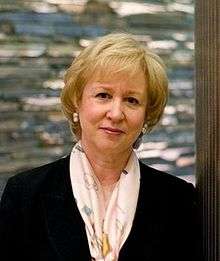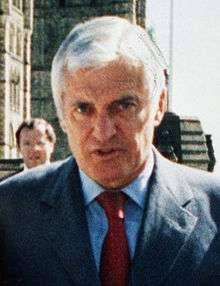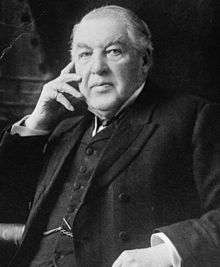List of Prime Ministers of Canada by time in office


.jpg)



Prime ministers of Canada do not have a fixed term of office; instead, they may stay in office as long as their government is supported by parliament under a system of responsible government. Both the number of terms served and the length of individual terms have varied considerably since Confederation. Historically, elections have been held every three to five years, although since 2006 a government act set fixed election days every four years unless parliament is dissolved earlier by the Governor General.[1] Prime ministers can be re-elected to serve any number of consecutive mandates, and some have served up to six terms, while several others have served for less than one full term. There are also four prime ministers who served multiple non-consecutive terms in the office.
Of the prime ministers who served less than one full term, two of them, Joe Clark and Paul Martin, had their time in office cut short by the collapse of a minority parliament and the subsequent election of the opposition party. In all other cases of short tenure, a new prime minister was put in place for the last few months of their predecessor's mandate—usually to try to gain support from the electorate before an election—but were subsequently defeated by the opposition party. The preceding Prime Minister always stays in office during an election campaign, and that time is included in the total. The first day of a Prime Minister's term is counted in the total, but the last day is not. This list is accurate as of December 7, 2016.
Prime ministers
Liberal Party of Canada Conservative Party of Canada Historical conservative parties/Progressive Conservative Party of Canada
| Prime Minister | Incumbency | Years in power[2] | Number of Mandates | Remarks[3][4][5][6] | |
|---|---|---|---|---|---|
| 1 | William Lyon Mackenzie King | 21 years, 154 days | 1921–1926, 1926–1930, 1935–1948A | 3 majority & 3 minority | William Lyon Mackenzie King served for three full terms in majority governments; two full terms in minority governments supported by opposition parties; and one short term under a minority government cut short by the King-Byng Affair after which he was replaced by Arthur Meighen. |
| 2 | Sir John A. MacdonaldB | 18 years, 359 days | 1867–1873, 1878–1891C D | 6 majority | Sir John A. Macdonald served for four full terms in majority governments; his second term in a majority government was cut short by the Pacific Scandal, with Alexander Mackenzie taking over; and one term in a majority government cut short by his death, after which four others served out the end of his final term. |
| 3 | Pierre Trudeau | 15 years, 164 days | 1968–1979, 1980–1984E | 3 majority & 1 minority | Pierre Trudeau served for three full terms in majority governments and one short term in a minority government. The final months of his last term were served out by John Turner. |
| 4 | Sir Wilfrid Laurier | 15 years, 86 days | 1896–1911 | 4 majority | Sir Wilfrid Laurier served for four full terms in majority governments. He served the longest uninterrupted term of any prime minister. |
| 5 | Jean Chrétien | 10 years, 38 days | 1993–2003 | 3 majority | Jean Chrétien served for three full terms in majority governments. The final six months of his last term were served out by Paul Martin. |
| 6 | Stephen Harper | 9 years, 271 days | 2006–2015 | 1 majority & 2 minority | Stephen Harper served for two short terms in minority governments and one full term in majority government. |
| 7 | Brian Mulroney | 8 years, 281 days | 1984–1993 | 2 majority | Brian Mulroney served for two full terms in majority governments. The final months of his last term were served out by Kim Campbell. |
| 8 | Sir Robert Borden | 8 years, 274 days | 1911–1920 | 2 majority | Sir Robert Borden served for two full terms in majority governments. The final year and a half of his last term were served out by Arthur Meighen. |
| 9 | Louis St. Laurent | 8 years, 218 days | 1948–1957 | 2 majority | Louis St. Laurent served out the end of William Lyon Mackenzie King's last term after the latter's retirement. He then served for two full terms in majority governments. |
| 10 | John Diefenbaker | 5 years, 305 days | 1957–1963 | 1 majority & 2 minority | John Diefenbaker served for one full term in a majority government and two short terms in minority governments. |
| 11 | R. B. Bennett | 5 years, 77 days | 1930–1935 | 1 majority | R. B. Bennett served for one full term in a majority government. |
| 12 | Lester B. Pearson | 4 years, 364 days | 1963–1968 | 2 minority | Lester B. Pearson served for two short terms in minority governments. The final months of his last term were served out by Pierre Trudeau. |
| 13 | Alexander Mackenzie | 4 years, 336 days | 1873–1878 | 1 majority | Alexander Mackenzie took over from Sir John A. Macdonald's first block of terms following the Pacific Scandal. He then served for one full term in a majority government. |
| 14 | Paul Martin | 2 years, 56 days | 2003–2006 | 1 minority | Paul Martin served out the end of Jean Chrétien's last term after the latter's retirement. He then served for one short term in a minority government. |
| 15 | Sir John Thompson | 2 years, 7 days | 1892–1894D | none | Sir John Thompson was the second of four prime ministers to serve out the end of Sir John A. Macdonald's last term after Macdonald's death. He was the second, and currently last prime minister of Canada to die in office. He never won an election of his own. |
| 16 | Arthur Meighen | 1 year, 260 days | 1920–1921, 1926F | none | Arthur Meighen served out the end of Sir Robert Borden's last term after the latter's retirement. He also briefly took over from William Lyon Mackenzie King's second term following the King-Byng Affair. His party had won more seats than King in the 1925 election, but did not win a majority. King was able to keep governing with the support of the Progressives until defeated in a confidence vote. The Governor-General then appointed Meighen as prime minister, but his government was soon defeated in a confidence vote as well and lost the resultant 1926 federal electtion. |
| 17 | Sir John Abbott | 1 year, 161 days | 1891–1892 | none | Sir John Abbott was the first of four prime ministers to serve out the end of Sir John A. Macdonald's last term after Macdonald's death. Due to health reasons he did not finish the term. He never won an election of his own. |
| 18 | Sir Mackenzie Bowell | 1 year, 128 days | 1894–1896 | none | Sir Mackenzie Bowell was the third of four prime ministers to serve out the end of Sir John A. Macdonald's last term after Macdonald's death. He lost the confidence of his cabinet and resigned before the end of the term. He never won an election of his own. |
| 19 | Justin Trudeau (incumbent) | 1 year, 33 days | 2015–present | 1 majority | Justin Trudeau is currently serving his first term leading a majority government. |
| 20 | Joe Clark | 273 days | 1979–1980 | 1 minority | Joe Clark served one short term in a minority government. |
| 21 | Kim Campbell | 132 days | 1993 | none | Kim Campbell served out the end of Brian Mulroney's last term after the latter's retirement. She never won an election of her own. |
| 22 | John Turner | 79 days | 1984 | none | John Turner served out the end of Pierre Trudeau's last term after the latter's retirement. He never won an election of his own. He may have been one of two prime ministers who never served as a Member of Parliament or Senator during any point of his tenure as prime minister. Some sources, however, report that he was sworn in as member for Vancouver Quadra a short time before he resigned as prime minister.[7] |
| 23 | Sir Charles Tupper | 68 days | 1896 | none | Sir Charles Tupper was the fourth of four prime ministers to serve out the end of Sir John A. Macdonald's last term after Macdonald's death. He never won an election of his own. He was only in power during an election campaign, making him one of two prime ministers, and perhaps the only one, who never served as a Member of Parliament or Senator during any point of his tenure as prime minister. |
Footnotes
- ^A Mackenzie King's incumbency was in three blocks: 4 years, 181 days; 3 years, 315 days; and 13 years, 23 days.
- ^B Sir John A. Macdonald was also Premier of the Province of Canada for 250 days, giving him a total of 19 years, 244 days.
- ^C Macdonald's incumbency was in two blocks: 6 years, 127 days and 12 years, 232 days.
- ^D The prime ministry was vacant for ten days each in 1891 and 1894.
- ^E Pierre Trudeau's incumbency was in two blocks: 11 years, 45 days and 4 years, 119 days.
- ^F Meighen's incumbency was in two blocks: 1 year, 172 days and 88 days.
See also
References
- ↑ "39th Parliament - 1st Session - Bill C-16: An Act to amend the Canada Elections Act". Legisinfo. Library of Parliament. 2008-12-09. Retrieved 2008-03-01.
- ↑ "Political Information - Ministerial Experience". Parlinfo. Library of Parliament. 2007-09-26. Retrieved 2008-03-01.
- ↑ Government of Canada (1994). Canada's Prime Ministers, 1867–1994: Biographies and Anecdotes. Ottawa: National Archives of Canada. Retrieved 2008-11-28.
- ↑ "Jean Chrétien". The Canadian Who's Who. XLIII. Toronto: University of Toronto Press. 2008.
- ↑ "Paul Martin". The Canadian Who's Who. XLIII. Toronto: University of Toronto Press. 2008.
- ↑ "Stephen Harper". The Canadian Who's Who. XLIII. Toronto: University of Toronto Press. 2008.
- ↑ Donald E. Blake (2011). Two Political Worlds: Parties and Voting in British Columbia. UBC Press. ISBN 9780774843324.